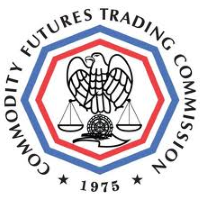The Importance of the CFTC Regulation for Forex Brokers

Brokers regulated by the CFTC are required by law to be licensed and regulated by both the CFTC and the NFA for the provision of financial services in the United States. The CFTC follows a regulatory framework that is consistently updated to ensure that all companies and individuals participating in the financial markets adhere to strict rules of conduct to prevent any fraud or abuse.
Most modern forex brokers offer a wide range of financial instruments, including currencies, commodities, metals, options and CFDs. The main role of the CFTC is to regulate Forex brokers offering brokerage services for all types of commodities, including oil, precious metals, agricultural commodities and other types of futures contracts.
What is the difference between CFTC regulated brokers and other brokers?
The CFTC is an independent agency that regulates brokers to what is acceptable when providing financial services to consumers in the US. The financial market is a breeding ground for a variety of types of financial crime, including client money abuse, money laundering, market manipulation and financial fraud. When it comes to protecting the interests of consumers who spend their hard earned money on investment, the CFTC is at the forefront of ensuring that the 2008 financial crisis does not recur, in part due to uncontrolled swap trading.
CFTC forex brokers, with their unwavering commitment to provide investors with a fair platform for trading in the financial markets, are considered the most reliable companies in the world. All types of brokers regulated in the US are accountable to the CFTC. And most brokers act in the best interests of their clients. Unlike other regulators, such as the FCA, consumers have the freedom to address complaints and tips directly to the CFTC when regulated brokers malfunction.
How are consumer complaints addressed by the CFTC?
The CFTC is keen to put the consumer before the broker, which is why the CFTC has become an integral part of the protection of consumer rights in the US. Traders and investors can contact the CFTC directly by filing complaints or providing tips on disagreements. Individuals can also take advantage of the whistleblower program to report violations and get high rewards directly from the government.
The CFTC regularly updates its anti-fraud and prevention program by informing consumers about the different types of financial crime and how they can be prevented. The CFTC also checks all financial companies operating in the US for financial irregularities and takes stringent measures against those who fail to comply with the strict CFTC standards.
The history of the CFTC and its regulatory protocol
The history of the CFTC began more than 150 years ago, when US agricultural commodities had to be regulated in the financial markets. The US government has been regulating futures for all types of commodities since the early 1920s. From 1974, the CFTC was responsible for the regulation of all futures for a wide range of commodities. The CFTC was created because of the immense popularity of trading in the financial markets, due to the influx of foreign exchange trading, commodities trading and other types of swap transactions. This resulted in an unregulated market and extreme instability. The CFTC has reduced chaos and has since played an important role in regulating the financial markets.
All types of merchandise trade are governed by the Commodity Exchange Act of 1936, which is subject to change from time to time. The CFTC operates outside the scope of the CEA, which forms the basis for all companies wishing to operate in the financial markets. The CFTC is also one of the few supervisors in the world funded by the government, unlike the NFA or the FCA, which are self-financing through membership fees and other fees.
How do you ensure that a broker is regulated by the CFTC?
All CFTC regulated forex brokers should clearly display their license number and regulation on the homepage of their website. You should also provide consumers with details of the license upon request. The CFTC also offers a variety of online resources to consumers to verify the authenticity of licensing and regulations. In addition, she has the authority to research a company or a person with whom she is involved.
The CFTC lists on its website details of upcoming corporate litigation due to regulatory compliance violations. It often updates information regarding previous legal proceedings and the suspension of licenses. A consumer can track the history of a business by carefully analyzing its records at the CFTC and how well it handles occasional consumer complaints and other issues. Finally, the CFTC requires every consumer to exercise caution when dealing with companies and recommends conducting extensive research on a company before making a deposit with a regulated broker.


